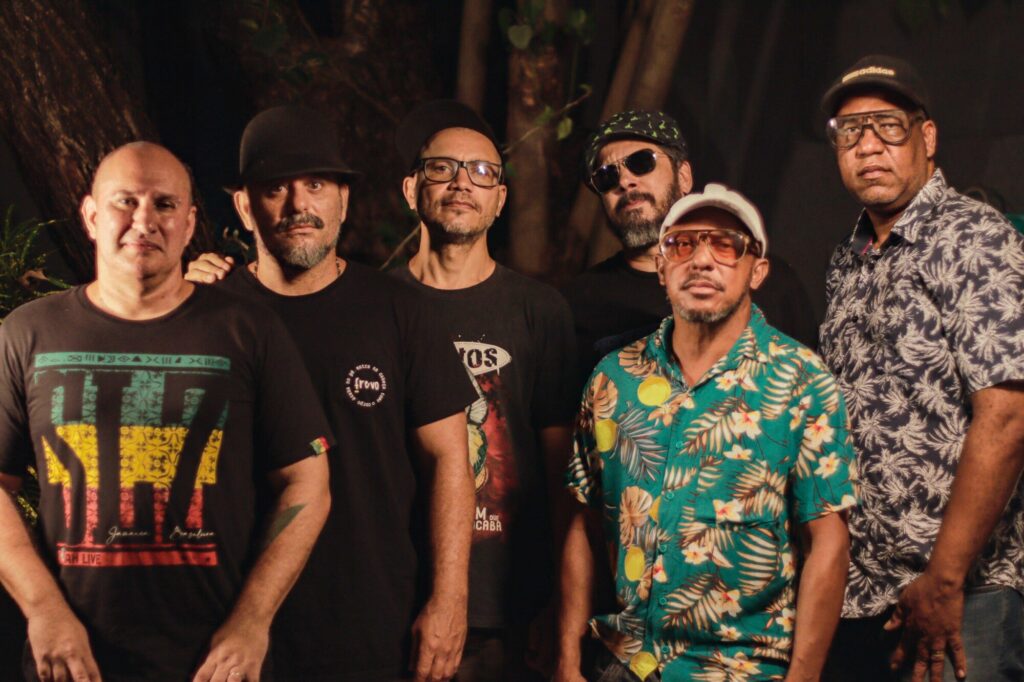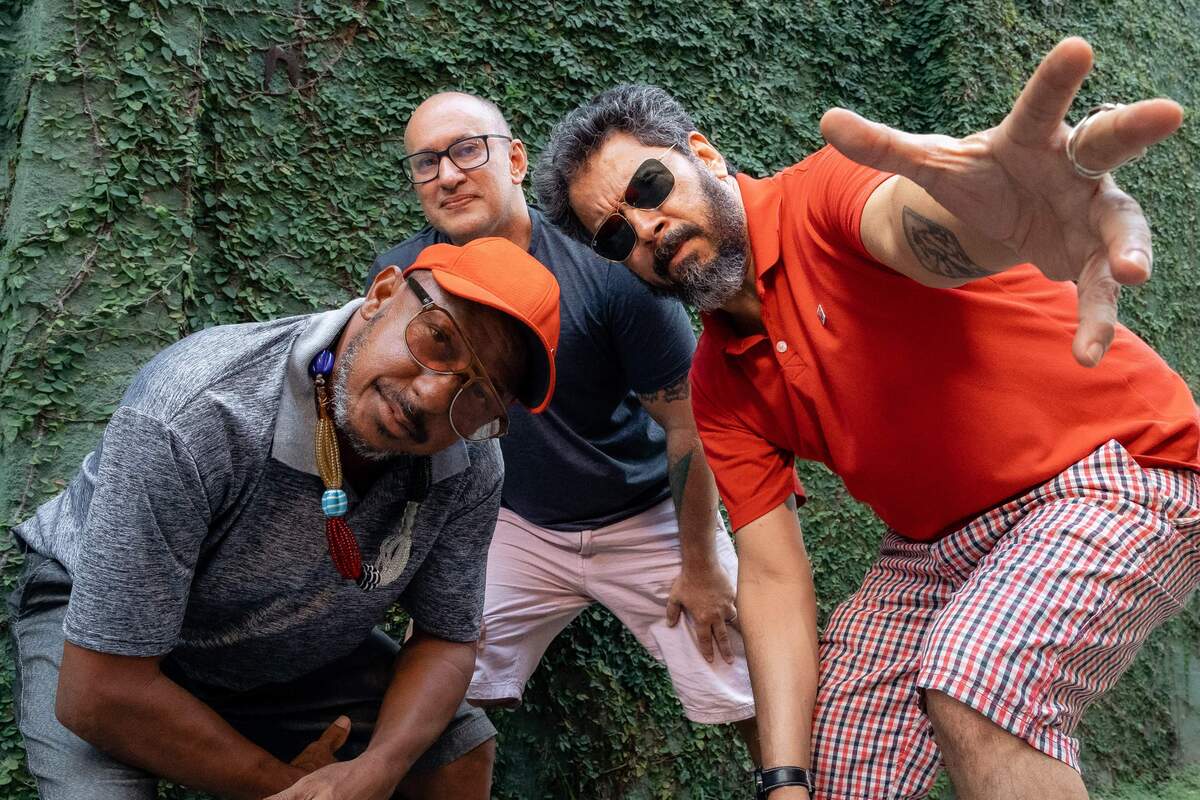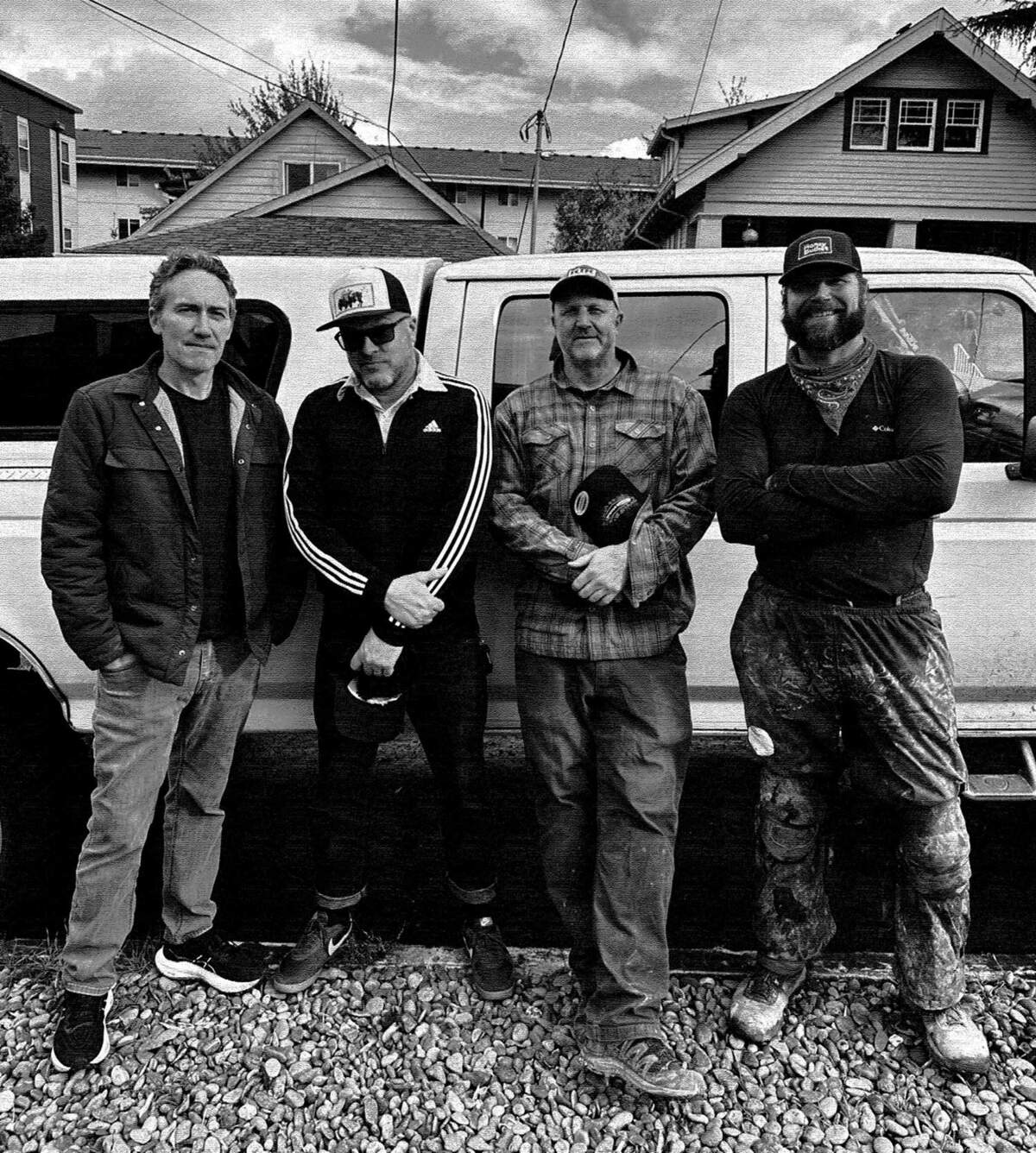30 Years of ‘Da Lama Ao Caos’: Nação Zumbi Interviewed on Manguebeat
Thirty years ago, ‘Da Lama Ao Caos’ shattered the mold of Brazilian music. Out of Recife’s mangroves came a seismic pulse: maracatu fused with punk, psychedelia braided with hip-hop, drums rooted in Afro-Brazilian tradition carrying visions of opposition and futurism.
Nação Zumbi truly ignited a cultural insurrection back then. Now, in 2025, the band marks that milestone with a rare London appearance on July 30 2025, performing the seminal album in full at Village Underground. “We’ve never stopped updating these songs,” they say. “There’s no such thing as being faithful to something that’s always moving.”
Surviving the tragic loss of frontman Chico Science in 1997, the group transformed from a manifesto into a method. Anchored by original members Jorge Du Peixe, Dengue, and Toca Ogan, and fueled by new collaborators, Nação Zumbi continues to channel the same cultural charge: antennas in the mud, signals sent wide.
‘Da Lama Ao Caos’ was named the greatest MPB (Música Popular Brasileira) album of the last 40 years for a reason. It still hits with the same voltage it carried in 1994…alive with friction, rhythm, and rupture. This London show is a reminder that Manguebeat wasn’t a moment frozen in time. It was and remains a movement wired into the present, pulsing with new mutations and the same energy that first erupted from the swamps of Recife.
“We like to reinvent ourselves.”
Three decades on, how do you perceive the original concept of ‘Da Lama Ao Caos’? As a cultural manifesto, a sonic rupture, a resistance? Has its meaning shifted for you over time?
Time has passed fast. However, for us, we are still within the hourglass of the Mangue movement. Back then, it was a manifesto that promoted a shift in cultural aesthetics. Today, we continue to propose new ways of seeing the world.
Manguebeat emerged in the swampy heat of Recife as a movement not just of music, but ecology, politics, and technology. In the age of algorithmic culture, what does Manguebeat look or sound like today?
Back then, we already talked about the technological possibilities we now have. The difference is that at the time, there wasn’t much access to information or technology. We spoke of something yet to come. Now we have access to what we were referring to, with all the benefits and drawbacks the digital age can bring. Using these tools intelligently and understanding how much harm they can cause is essential.
The original record fused maracatu with hip-hop, punk, psychedelia and Afro-Brazilian traditions in a raw, almost prophetic way. How do you revisit or reinterpret those textures live now — especially with the addition of new musicians to the line-up?
We like to reinvent ourselves. And we have so much fun doing it. We could keep updating those songs for the rest of our lives. There’s no way to be faithful to the original versions because everything has changed.
It would be amazing to hear about the local scene and where you got your first records. What inspired the sound you were going for?
Everything inspired us and still does. Daily life, our emotions, the people we love, the records we listen to, the books we read. It’s still like that.
Three decades on, how do you approach playing songs from ‘Da Lama Ao Caos’ and ‘Afrociberdelia’ live now, compared to how they were recorded and performed back in the day?
Like I said before, we naturally and simply change and reinvent without thinking too much about it.
Chico Science once spoke about the “antenna stuck in the mud,” a metaphor for cultural hybridism rooted in place but open to the world. How do you relate to that idea in your own evolution?
That idea illustrates our music. We capture things from the air and bring them together to create a sonic identity.
The loss of Chico Science could have ended the band. Instead, Nação Zumbi has endured, transformed, and diversified. What inner compasses guided that continuity without calcifying?
We’ve always been a group. The creativity flows from everyone, not just one person. That’s the secret.
You’ve all explored rich solo trajectories. When you return to Nação Zumbi as a collective force, how do these outside journeys enrich or complicate the chemistry on stage and in the studio?
We’re people who enjoy being together. Solo projects are great to let out ideas that don’t fit inside Nação Zumbi. And in return, we come back with more experience to renew NZ.
“We opened paths and minds.”
Do you think Manguebeat and your early work planted seeds for the more hybridized Brazilian music scene we’re seeing now — from BaianaSystem to Teto Preto and beyond?
Absolutely. We opened paths and minds. We showed that being different is possible.
I would love it if you could get into details about the writing, recording, and finalizing of Da Lama Ao Caos and its follow-up Afrociberdelia. What are some of the best and worst memories from working on it?
There are no bad memories. Only the best ones. I think the band’s evolution is a reflection of all the good things.
Looking back at the recording process for both ‘Da Lama Ao Caos’ and ‘Afrociberdelia,’ were there any recording techniques, particular pieces of gear, or even quirky studio habits that became integral to the Nação Zumbi sound during that formative period? Any secret ingredients, so to speak, that helped forge those iconic sonic textures?
We didn’t know how to record in a studio. Everything was new, and we learned to use it our way. Liminha was a very important person for the band’s evolution.
Could you describe the atmosphere in the studio during those sessions? Was it a free-for-all of experimentation, or was there a meticulously laid-out blueprint for weaving those disparate influences — maracatu, funk, rock, psychedelia — into such a cohesive, revolutionary sound? What was the biggest “happy accident” or spontaneous burst of genius that made it onto the final cut of that album?
It was fun and tense because we could feel the weight of responsibility. We had something ready, but the songs naturally kept changing, and new ones kept emerging.
What would be the craziest gig you ever did?
We’ve had so many crazy shows. I don’t know if I could name the craziest one.

What’s next for you?
New album coming in 2026.
Klemen Breznikar
Headline photo: Divulgacao
Nação Zumbi Facebook / Instagram / X / YouTube




